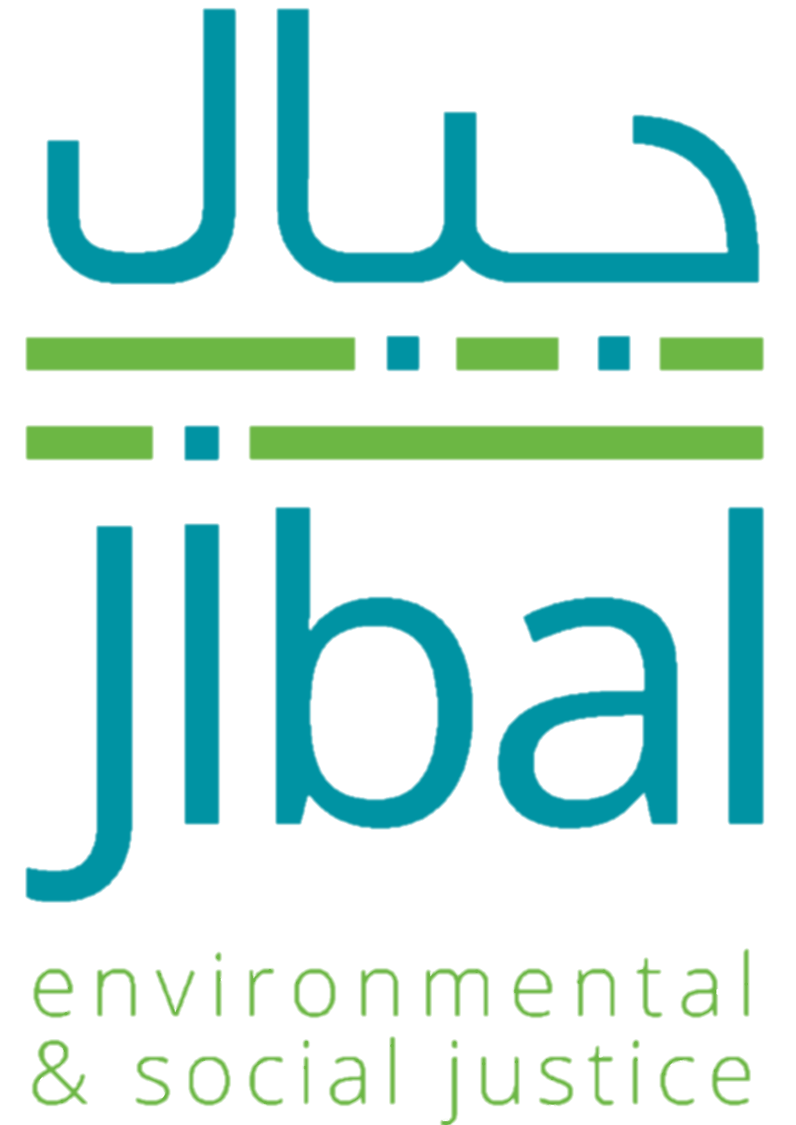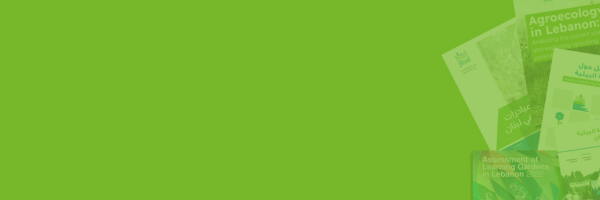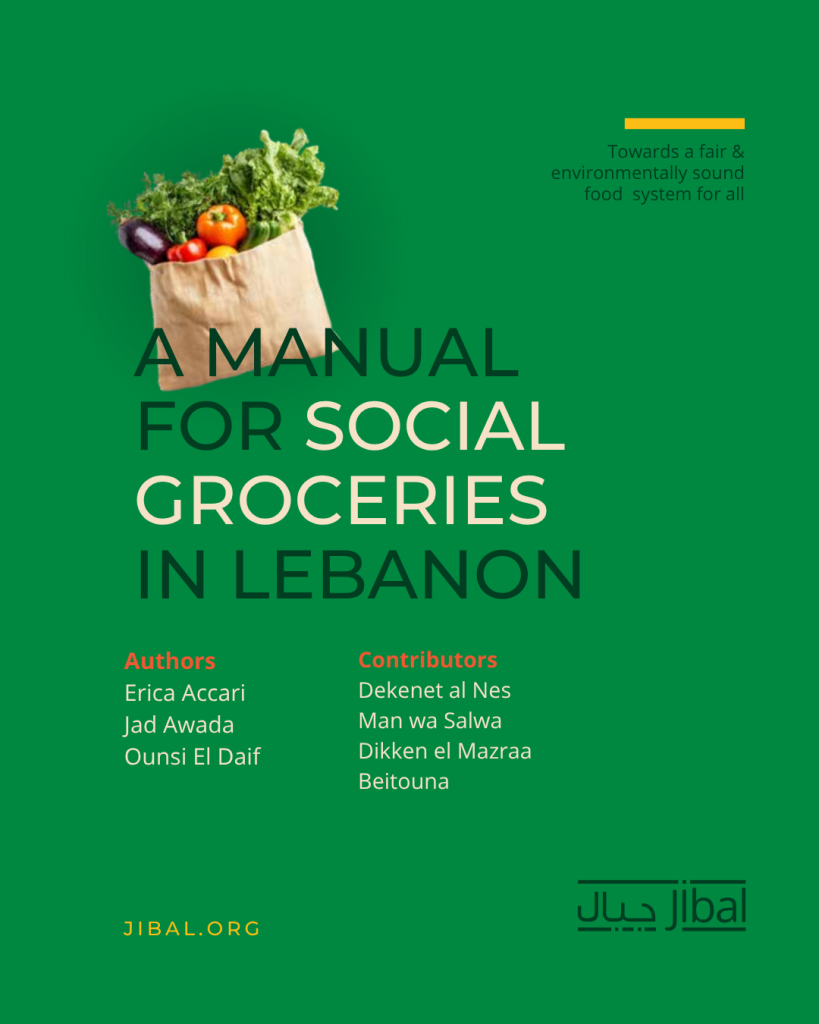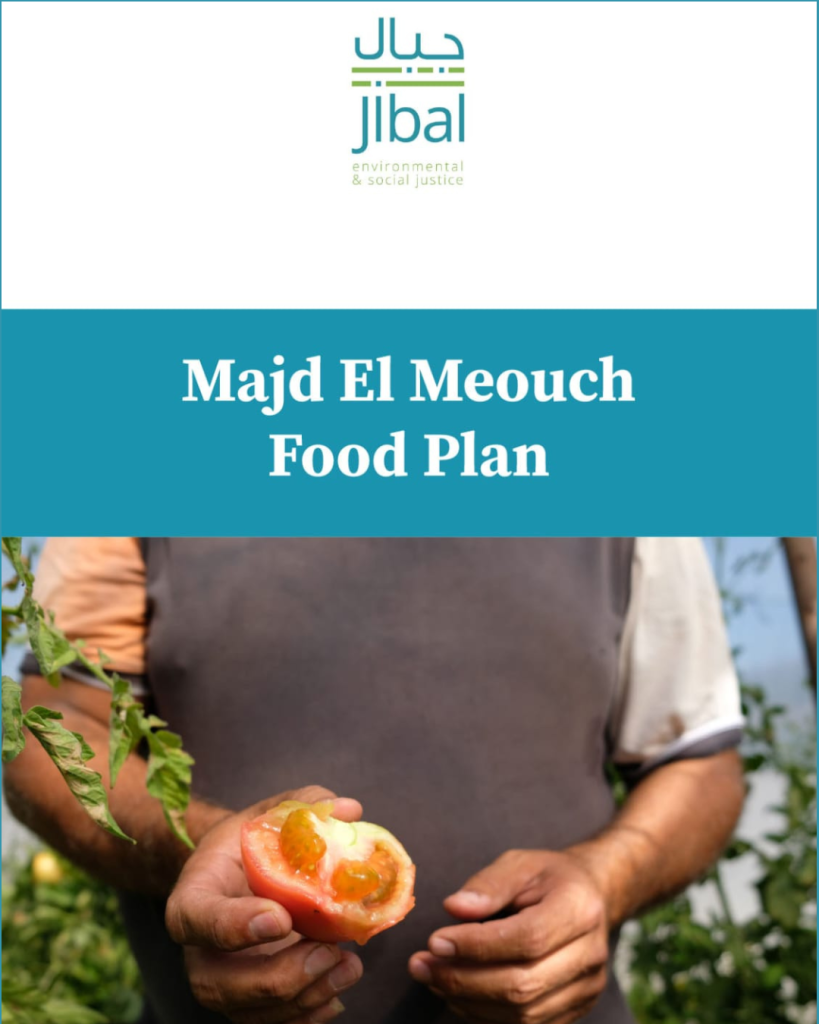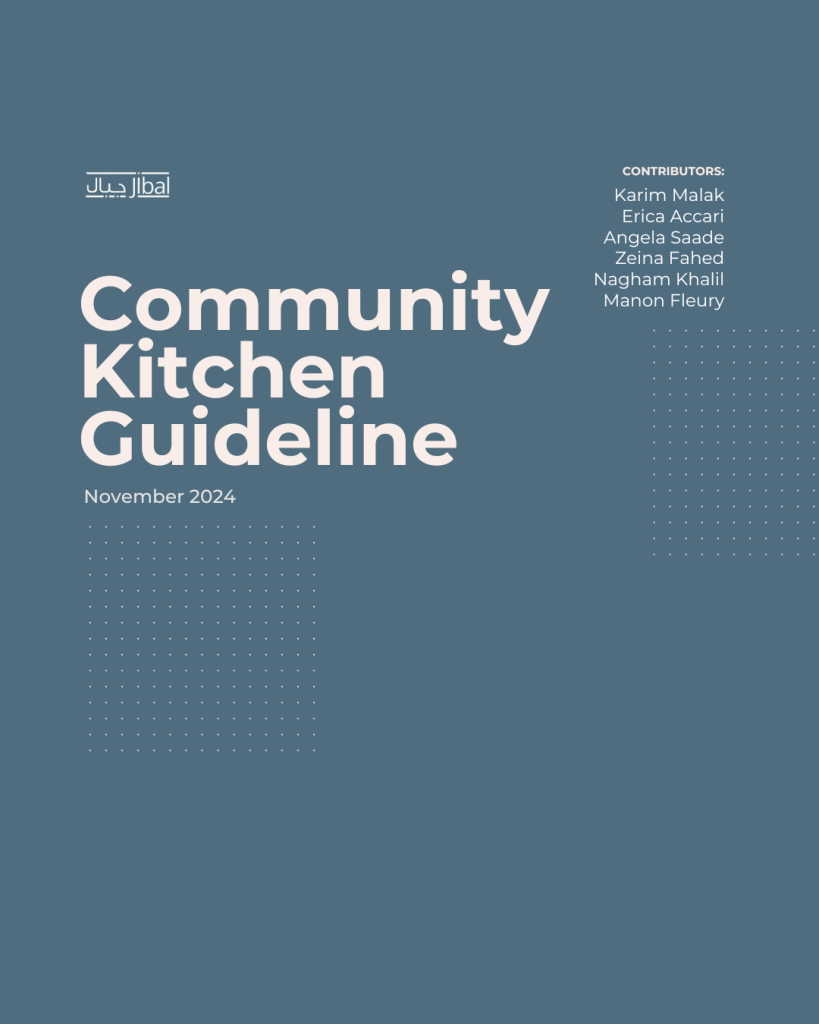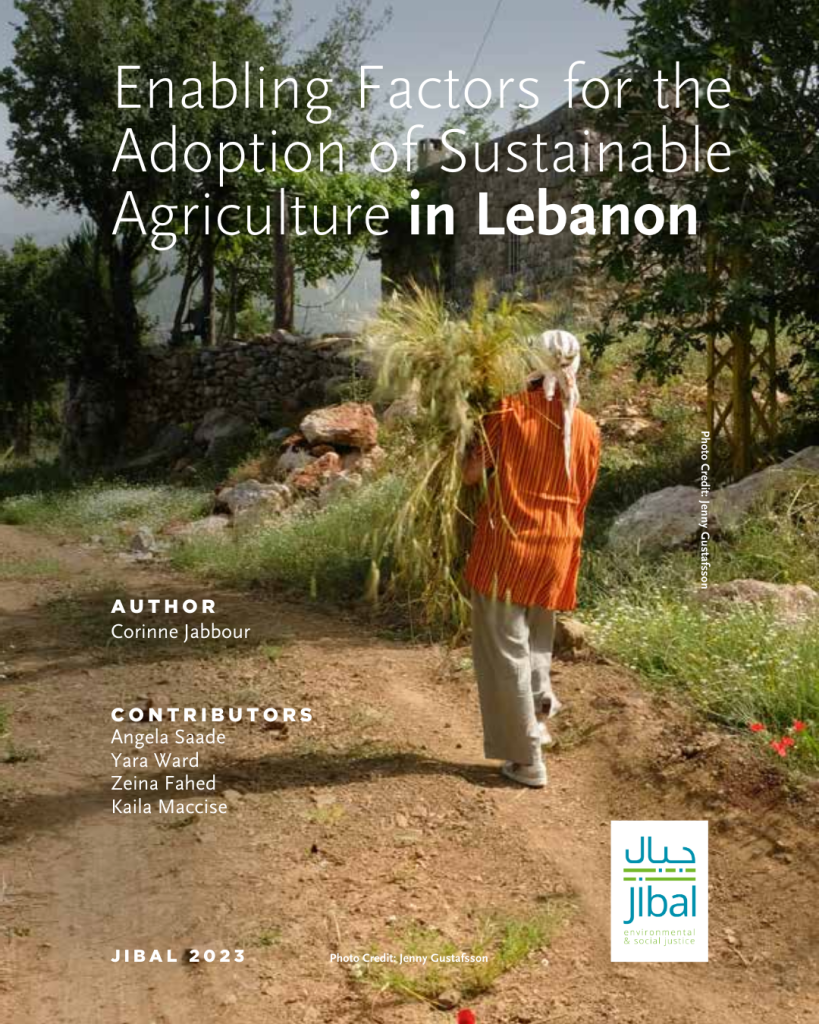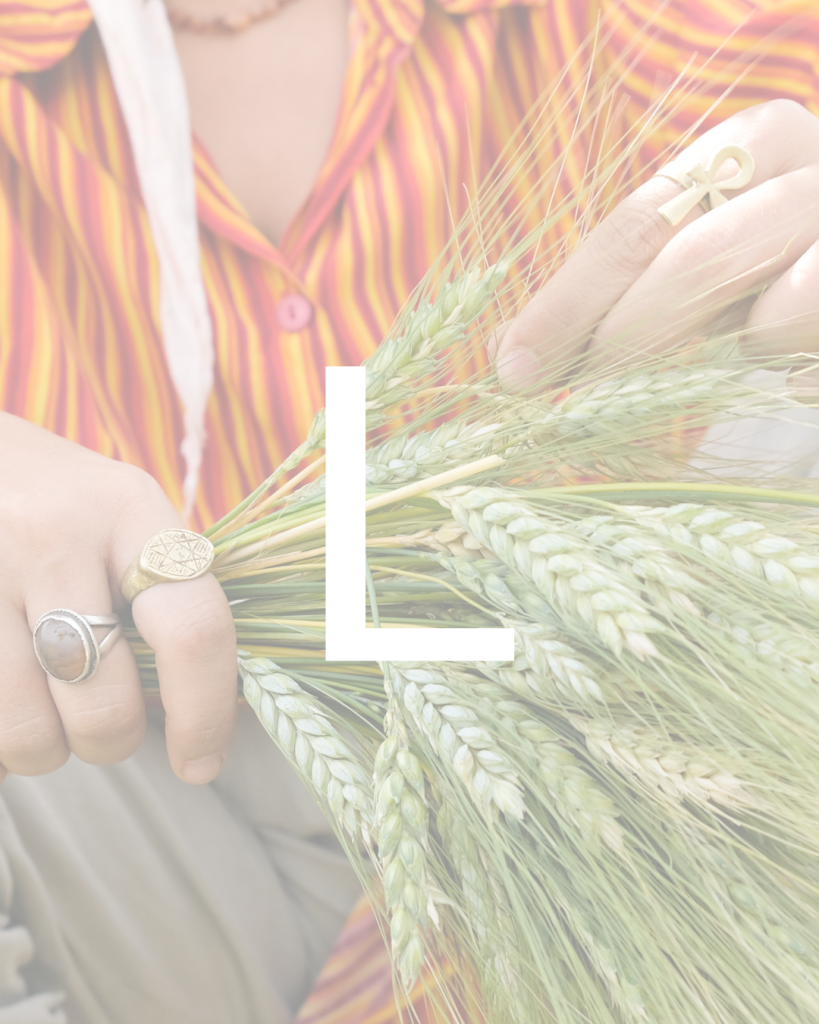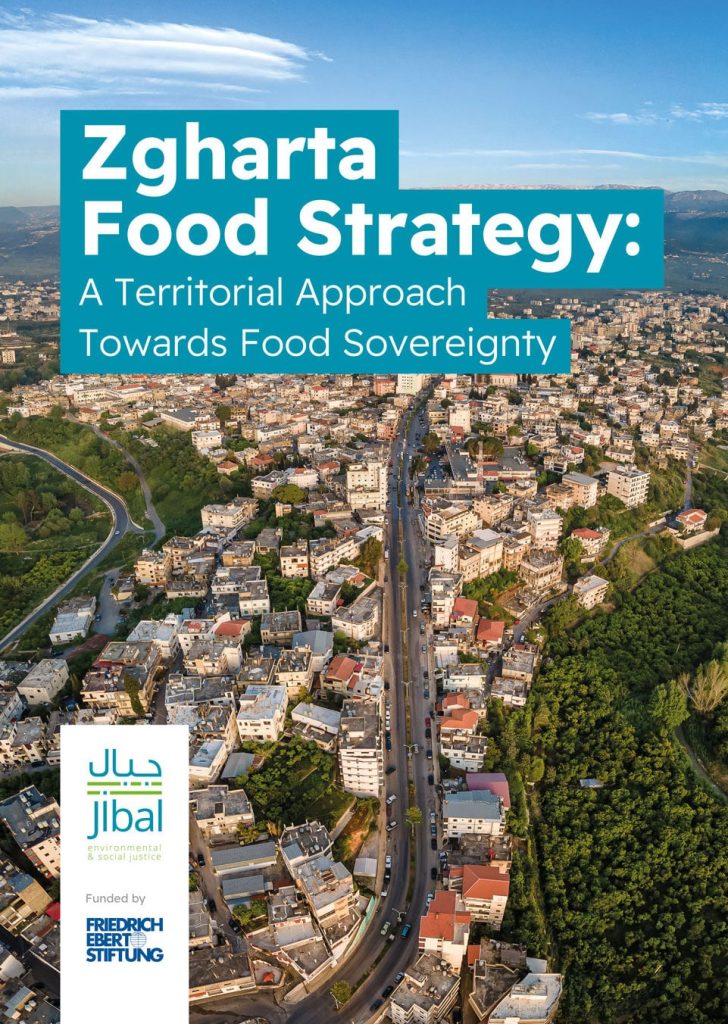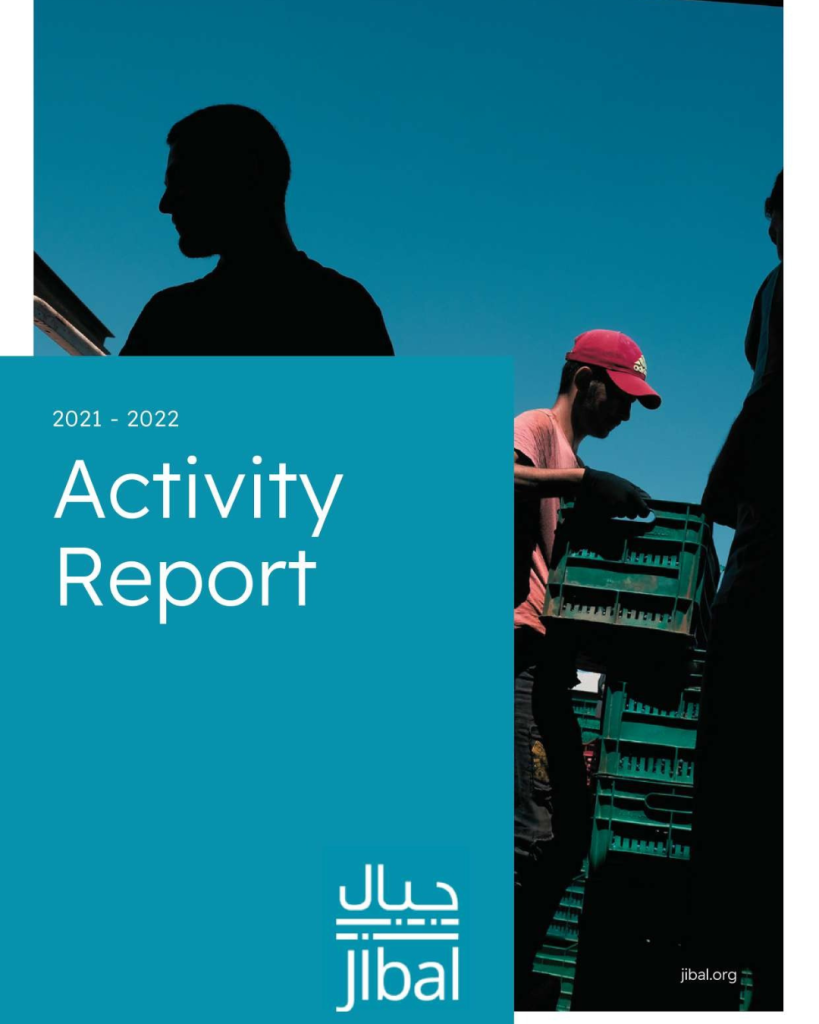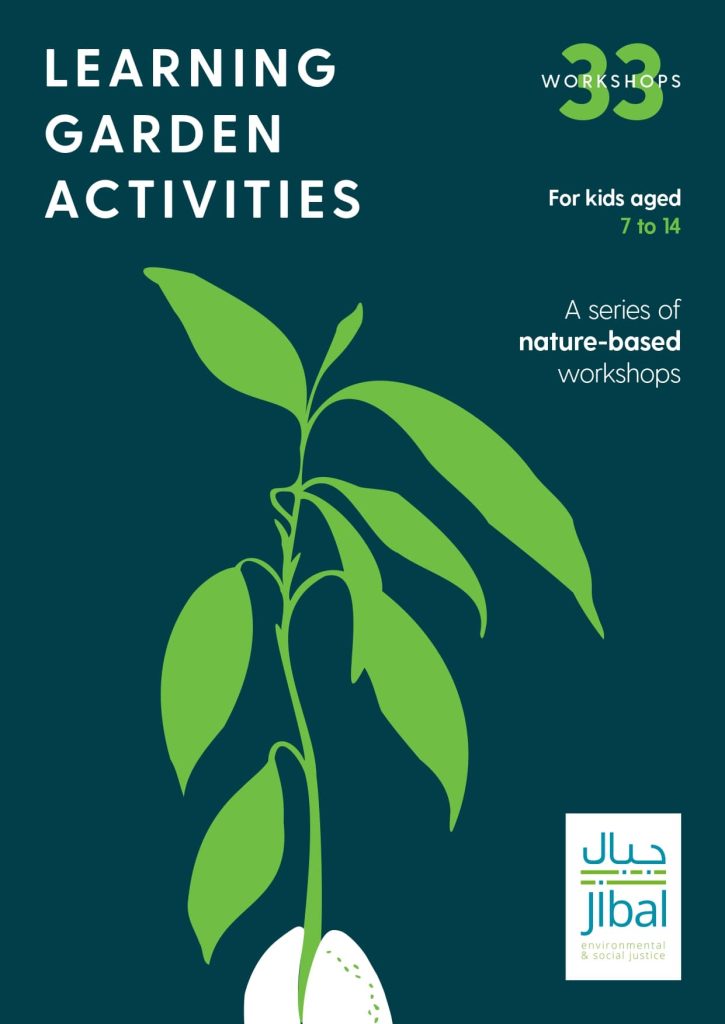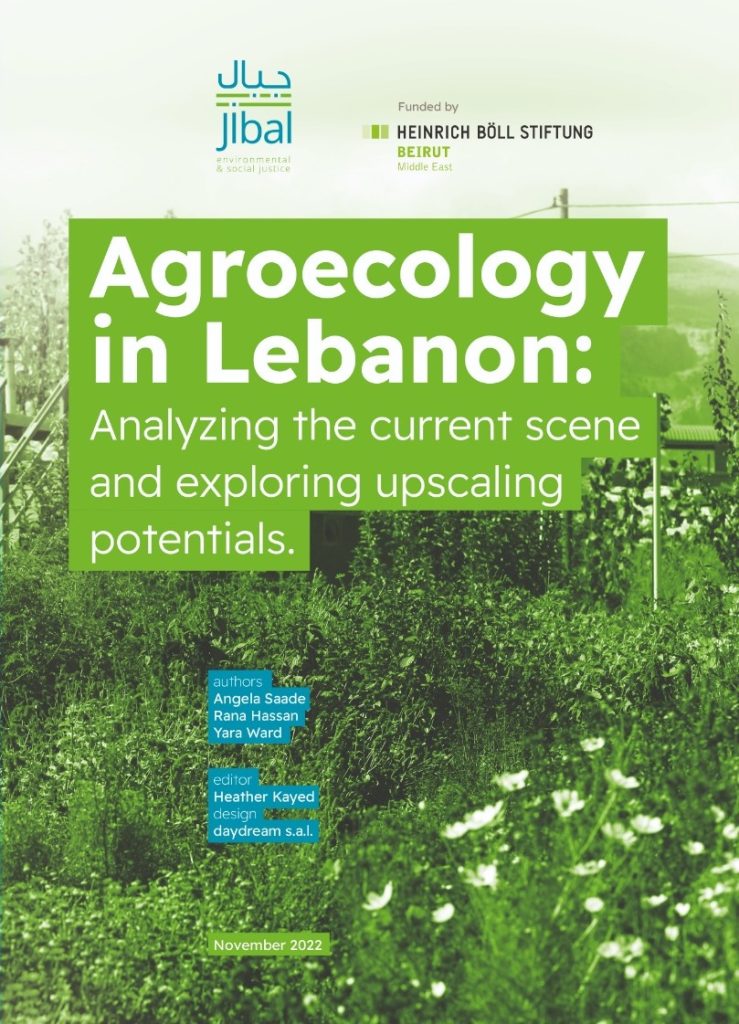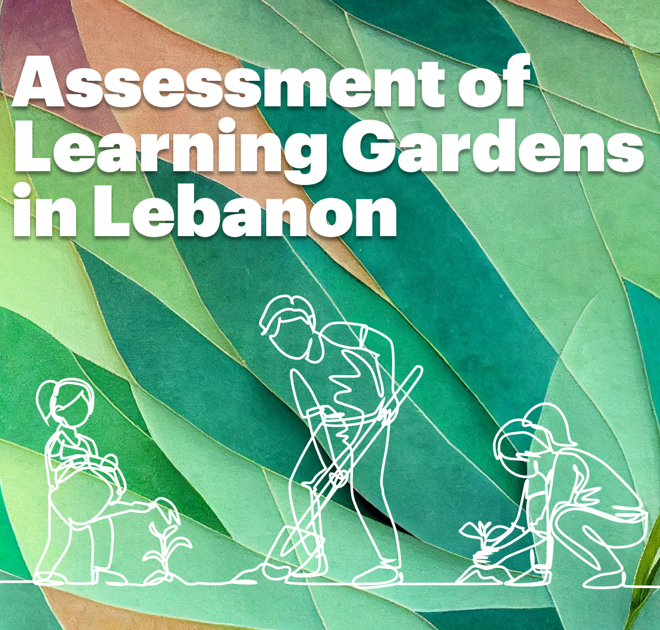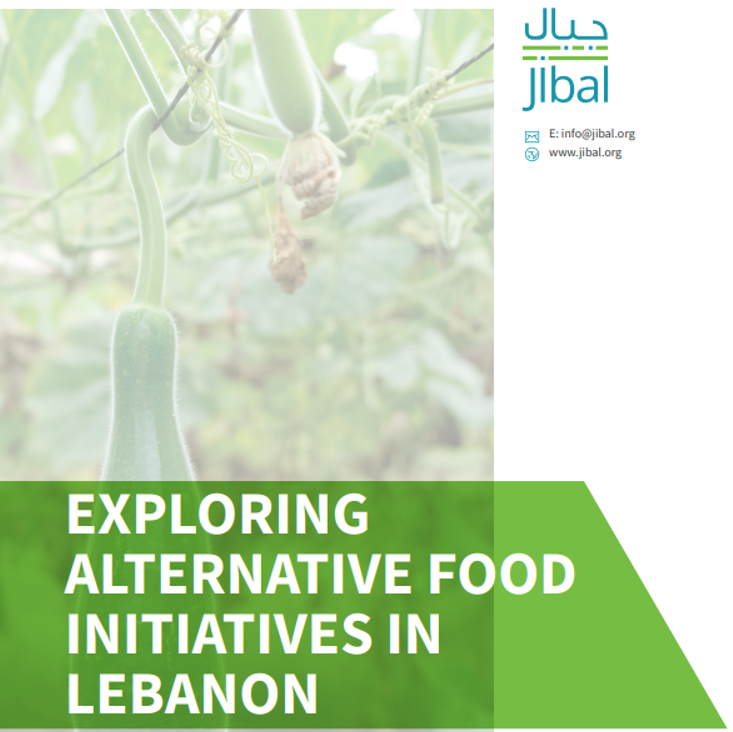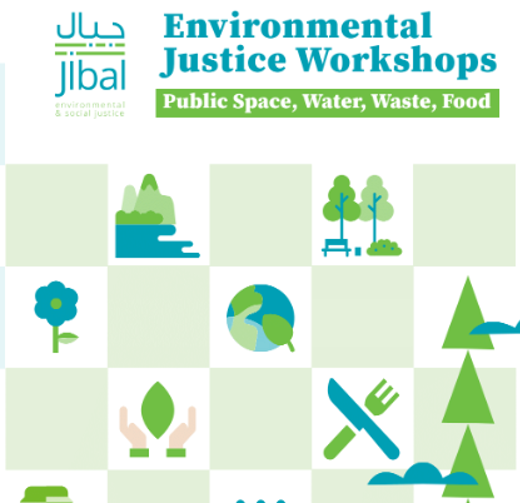We believe that knowledge is a powerful tool for social and environmental justice. Our publications reflect our commitment to research, advocacy, and community-driven solutions, covering topics such as food sovereignty, environmental and social justice, and alternative education. Through our research, or reports, we aim to challenge dominant narratives, amplify local voices, and provide insights that inspire change. Below, you’ll find all our publications.
Call to Action!
We encourage researchers, activists, and practitioners to explore, share, and engage with our work. If you have any inquiries or wish to collaborate, feel free to reach out!
نحن نؤمن بأن المعرفة أداة قوية لتحقيق العدالة الاجتماعية والبيئية. وتعكس منشوراتنا التزامنا بالبحث والمناصرة والحلول المجتمعية، وتغطي موضوعات مثل السيادة الغذائية، والعدالة البيئية والاجتماعية، والتعليم البديل. ونهدف من خلال أبحاثنا وتقاريرنا إلى تحدي الروايات السائدة، وتضخيم الأصوات المحلية، وتقديم رؤى ملهمة للتغيير. تجدون أدناه جميع منشوراتنا. نشجع الباحثين والناشطين والممارسين على استكشاف أعمالنا ومشاركتها والتفاعل معها. إذا كانت لديكم أي أسئلة او استفسار أو رغبة في التعاون، فلا تترددوا في التواصل معنا
A Manual for Social Groceries in Lebanon
This manual introduces one particular innovation used to address questions of sustainability and justice in the food system: the social grocery model, a community-driven alternative to conventional food retail that prioritizes cooperative values, affordable food, social connections, and equitable relationships with food producers. The manual outlines the model’s core principles, functions, and practical steps for implementation, drawing on case studies from Lebanon and beyond. By illustrating these solidarity-based initiatives in-depth, we hope to inspire their spread across Lebanon, highlighting the power of community-grown and locally adapted models that function more cooperatively in challenging times.
دليل البقالة الاجتماعية في لبنان
يُقدّم هذا الدليل ابتكاراً محدّداً يُستخدم لمعالجة مسائل الاستدامة والعدالة في النظام الغذائي: نموذج البقالة الاجتماعية، وهو بديل مجتمعي لتجارة الغذائيات التقليدية، يعطي الأولوية للقيم التعاونية، والغذاء بأسعار معقولة، والروابط الاجتماعية، والعلاقات المنصفة مع منتجي الأغذية. كما يُحدد المبادئ الأساسية للنموذج ووظائفه والخطوات العملية لتنفيذه، مستنداً إلى دراسة حالات معيّنة في لبنان وخارجه. ومن خلال توضيح هذه المبادرات القائمة على التضامن العميق، نأمل أن نحفّز على انتشارها في جميع أنحاء لبنان، مسلّطين الضوء على قوة النماذج المجتمعية والمتكافئة محلياً التي تعمل بشكل أكثر تعاوناً في الشدائد.
Majd El Meouch Food Plan 2024
This publication outlines the development and implementation of a territorial food plan in Majd El Meouch, Lebanon. Informed by collaborative assessments and consultations with local authorities and the community, the resulting comprehensive report details action plans and recommendations. The action plan aims to ensure a sustainable and strategic approach to local food system development, engaging various stakeholders in creating a resilient and sustainable food environment. In addition, it serves as a reference for the municipality, guiding local authorities in integrating food and farming considerations into their planning and budgeting decisions.
خطة مجد المعوش الغذائية
هذا التقرير يحدد تطور وتنفيذ خطة غذائية إقليمية في مجد المعوش، لبنان. تم إعدادها بناءً على تقييمات مشتركة ومشاورات مع السلطات المحلية والمجتمع، ويتضمن التقرير الشامل تفاصيل خطط العمل والتوصيات. تهدف خطة العمل إلى ضمان نهج مستدام واستراتيجي لتطوير نظام الغذاء المحلي، مع مشاركة الأطراف المعنية المختلفة في خلق بيئة غذائية مرنة ومستدامة. بالاضافة الى ذلك، يعتبر هذا الجهد مرجعًا للبلدية، حيث يوجه السلطات المحلية في دمج اعتبارات الغذاء والزراعة ضمن قراراتهم التخطيطية والميزانية
Jibal’s Community Kitchen Guideline 2024
The Community Kitchen Guideline was developed based on experiences and lessons learned from supporting and setting up 5 community kitchens in different shelters (Furn El Chebbak, Broumana, Bikfaya, Mtain and Baalbek – Hermel). Each shelter has adopted slightly different models that are ever changing. It aims to guide and assist individuals or initiatives working on establishing community kitchens in shelters. This version of the guideline will be continuously updated, and we welcome feedback from hands-on experiences to collaboratively work toward the best possible version.
إرشادات المطبخ المجتمعي
تم تطوير إرشادات المطبخ المجتمعي بناءً على تجاربنا والدروس المستفادة من دعم وإنشاء خمسة مطابخ مجتمعية في مراكز إيواء مختلفة. كل مركز إيواء يعتمد نموذجًا مختلفًا قليلاً ويتغير باستمرار. تهدف هذه الإرشادات إلى توجيه ومساعدة الأفراد أو المبادرات التي تعمل على إنشاء مطابخ مجتمعية في مراكز الإيواء. سيتم تحديث هذه النسخة من الإرشادات بشكل مستمر، ونرحب بأي ملاحظات من التجارب العملية لنتمكن من العمل معاً للوصول إلى أفضل نسخة ممكنة
Jibal’s Annual Activity Report 2023
This past year has been a journey filled with challenges, significant achievements, and inspiring collaborations. We are pleased to share with you our annual activity report, which highlights our efforts and dedication to advancing environmental and social justice. Through the commitment of our team, the support of our partners, and the resilience of the communities we work with, we have made meaningful progress in food sovereignty and alternative education. We invite you to explore our journey through this report.
لقد كان العام الماضي رحلة مليئة بالتحديات، الإنجازات الهامة، والتعاون المُلهِم. يسعدنا أن نشارككم تقرير نشاطاتنا السنوي، الذي يُبرز جهودنا وتفانينا في تعزيز العدالة البيئية والاجتماعية. من خلال التزام فريقنا، دعم شركائنا، وصلابة المجتمعات التي نعمل معها، تمكنا من إحراز تقدم معنوي في مجال السيادة الغذائية والتعليم البديل. ندعوكم لاستكشاف رحلتنا من خلال هذا التقرير
Enabling Factors for the Adoption of Sustainable Agriculture in Lebanon
The Enabling Factors study examines the shift towards sustainable agriculture in Lebanon, exploring key factors influencing farmers’ decisions through interviews and observations. It highlights the roles of economic, social, and environmental considerations and proposes a framework to enhance sustainable practices and policy interventions within the agricultural sector.
العوامل التمكينية لتبنّي الزراعة المستدامة في لبنان
هذا التقرير يدرس التحول نحو الزراعة المستدامة في لبنان، من خلال كشف العوامل الرئيسية التي تؤثر على قرارات المزارعين من خلال المقابلات والملاحظات. تبرز الدراسة دور اعتبارات اقتصادية واجتماعية وبيئية وتقترح إطارًا لتعزيز الممارسات المستدامة وتدخلات السياسات ضمن القطاع الزراعي
Land Stories – We tell Stories about Plants and People
Land Stories is a storytelling project centered on Lebanon and the nearby region. All stories portray people and the crops they grow, from wheat and apples to citrus and aubergine, on land that was central to the beginnings of world agricultural history. Many farmers in the region of Lebanon and the surrounding countries continue to use indigenous knowledge as well as other kinds of methods, including more recent and innovative ones, to develop their practices, not least as a way to adapt to ongoing crises. Each farmer and community works with specific methods and techniques, rooted in their different environments and surroundings. This forms the basis for a sustainable way of caring for the land. Land Stories is an attempt to document and share this knowledge.
حكايات الأرض – نروي قصصًا عن النباتات والأشخاص
حكايات الأرض هو مشروع سرد قصصيّ مركزها في لبنان والمنطقة المجاورة. تصوّر هذه القصص الناس والمحاصيل التي يزرعونها، . يواصل العديد من المزارعين في منطقة لبنان والدول المحيطة استخدام المعرفة المحلّية، بالإضافة إلى أنواع أخرى من الأساليب، بما في ذلك الأكثر تطوّرًا وابتكارًا، لتطوير ممارساتهم، ليس أقلّها كوسيلة للتكيّف مع الأزمات المستمرّة. ويعمل كلّ مزارع ومجتمع وفق أساليب وتقنيّات محدّدة، متجذّرة في بيئاتهم ومحيطهم المختلف. وهذا يشكّل الأساس لآلية مستدامة لرعاية الأرض. “حكايات الأرض” هي محاولة لتوثيق هذه المعرفة ومشاركتها من القمح والتفّاح إلى الحمضيّات والباذنجان، في أرض كانت محوريّة في بدايات التاريخ الزراعيّ العالميّ
Zgharta Food Strategy: A Territorial Approach Towards Food Sovereignty
This publication outlines the development and implementation of a food strategy in the Zgharta region of Lebanon. The report emphasizes the urgent need for a sustainable and resilient food system due to hyperinflation, increasing food insecurity, and heavy reliance on imports. The territorial food strategy aims to unite various stakeholders, including producers, policymakers, NGOs, and local communities, to create environmentally and economically sustainable food systems that prioritize food sovereignty, promote agroecology, and ensure access to affordable and nutritious food for all.
استراتيجية الغذاء في زغرتا: مقاربة محلية نحو سيادة غذائية
هذا التقرير هو استراتيجية غذائية محلية تلخص العملية التطويرية والتنفيذية للخطة الغذائية في منطقة زغرتا – لبنان. يؤكد التقرير على الحاجة الملحة لنظام غذائي مستدام وقادر على الصمود بوجه: التضخم المفرط٬ الانعدام المتزايد للأمن الغذائي والإعتماد الكبير على الواردات. تهدف استراتيجية الغذاء المحلية إلى توحيد مختلف المعنيين من منتجين٬ صُنّاع سياسات٬ منظمات غير حكومية ومُجتمعات محلية لإنشاء أنظمة غذائية مستدامة بيئيًا واقتصاديًا تعطي الأولوية للسيادة الغذائية وتعزز البيئة الزراعية كما تضمن الوصول إلى أطعمة مُغذية وذات أسعار مُناسبة للجميع
Jibal’s Annual Activity Report 2021 – 2022
This past year has been a journey filled with challenges, significant achievements, and inspiring collaborations. We are pleased to share with you our annual activity report, which highlights our efforts and dedication to advancing environmental and social justice. Through the commitment of our team, the support of our partners, and the resilience of the communities we work with, we have made meaningful progress in food sovereignty and alternative education. We invite you to explore our journey through this report.
لقد كان العام الماضي رحلة مليئة بالتحديات، الإنجازات الهامة، والتعاون المُلهِم. يسعدنا أن نشارككم تقرير نشاطاتنا السنوي، الذي يُبرز جهودنا وتفانينا في تعزيز العدالة البيئية والاجتماعية. من خلال التزام فريقنا، دعم شركائنا، وصلابة المجتمعات التي نعمل معها، تمكنا من إحراز تقدم معنوي في مجال السيادة الغذائية والتعليم البديل. ندعوكم لاستكشاف رحلتنا من خلال هذا التقرير
Learning Garden Activities
A series of 33 workshops for children aged 7 to 14 offering a nature-based, experiential, and child-centered approach to education. These workshops utilize engaging tools such as theater, crafts, sensory experiences, and practical skills to reconnect children with nature, promote food sovereignty, and instill a sense of environmental justice. This curriculum will help nurture children’s relationships with nature, each other, their community, their food, and their food producers, inspiring the next generation of environmental stewards for a sustainable future.
أنشطة للحدائق التعليمية
سلسلة مؤلفة من 33 ورشة عمل مخصصة للأطفال الذين تتراوح أعمارهم بين 7 و14 عاماً ترتكز على أصول التعليم التجريبي والقائم على الحقوق. تستخدم هذه الورش أدوات مثل المسرح والحرف اليدوية وتجارب الحواس ومهارات عملية لإعادة إحياء الرابط بين الأطفال و بالطبيعة وتعزيز حس العدالة البيئية وأهمية السيادة الغذائية. يعمل هذا المنهج على تنمية علاقة الأطفال بالطبيعة وببعضهم البعض وبالمجتمع والطعام ومنتجي الطعام، ملهمًا جيل المستقبل ليكون حامي للبيئة يعمل من أجل مستقبل مستدام
Agroecology in Lebanon: Analyzing the current scene and exploring upscaling potentials.
Since 2019, Lebanon has been passing through a tremendous economic crisis which has caused significant social and environmental damage, highlighting issues in the conventional food system model driven by agroindustry. This publication is built on the understanding that agroecology– an alternative food system vision– can be a tool to build a more equitable food system. This research is interested in how agroecology as a framework (specifically one that considers food sovereignty) is being applied in Lebanon, with an underlying question: how can it be upscaled from scattered, isolated initiatives into a more cohesive, cross-country approach which influences the agricultural and food practices and policies in Lebanon?
A documentary following agroecology through its historical progress in Lebanon was also developed as part of this project under the name “Agroecology, from Past to Future”.
For the Arabic version, click here.
Assessment of Learning Gardens in Lebanon
A number of alternative educational initiatives have emerged in Lebanon, many of which have begun addressing connection to nature and land, place-based immersion, food justice, and sustainability more generally. These initiatives fall within the category of ‘learning garden’, which can be broadly understood as a dynamic space outside of the traditional classroom where experiential learning takes place. This study identifies the social and well-being components of LGs to help to gain a baseline idea of their various uses, challenges, and needs.
تقييم الحدائق التعليمية في لبنان
ظهر عدد من المبادرات التعليمية البديلة في لبنان ، بدأ الكثير منها في تعزيز الارتباط بالطبيعة والأرض ، والانغماس في المكان ، والعدالة الغذائية ، والاستدامة بشكل عام. تندرج هذه المبادرات ضمن فئة “حديقة التعلم” ، والتي يمكن فهمها على نطاق واسع على أنها مساحة ديناميكية خارج الدراسة التقليدية حيث يتم التعلم من خلال التجارب. تحدد هذه الدراسة المكونات الاجتماعية والرفاهية في الحدائق التعليمية للمساعدة في اكتساب فكرة أساسية عن الاستخدامات والتحديات والاحتياجات المختلفة.
Exploring Alternative Food Initiatives in Lebanon
While the system of the wholesale market in Lebanon for farmers is most of the times unfair and nontransparent to farmers, many alternatives have been developing during the last decade. From farmer’s markets, to grocery cooperatives, this report explores these different options, with the aim of spreading these models and learning more from their success and challenges.
استكشاف مبادرات غذائية بديلة في لبنان
ان نظام سوق الجملة للمزارعين في لبنان هو في معظم الأحيان غير عادل وغير شفاف للمزارعين، فقد تم تطوير العديد من البدائل خلال السنوات الماضية كأسواق مزارعين وتعاونيات البقالة. يستكشف هذا التقرير هذه المبادرات المختلفة، بهدف نشر هذه النماذج ومعرفة المزيد عن نجاحها وتحدياتها.
Report: Environmental Justice in Lebanon
The report explores environmental movements and mobilizations that have taken place in Lebanon over the last two decades. The multiplicity of cases explored often reveal connections between claims for preserving the environment and claims for social justice. Social injustice relates not only to the redistribution of wealth, but also to recognizing the voices of the less powerful and allowing them to take part in the decision-making process.
تقرير: العدالـة البيئية في لبنان
يستطلع هذا التقرير الحركات والتحركات الشعبية البيئية التي حدثت في لبنان على مدى العقدَين الماضيَين. وتكشف القضايا المتعدّدة التي جرى استكشافها عن وجود روابط بين مطالبات الحفاظ على البيئة والمطالبات بالعدالة الاجتماعية. فترتبط سبل عيش الكثير من الأشخاص ارتباطًا مباشرًا ببيئتهم. لا يتعلّق الظلم الاجتماعي بإعادة توزيع الثروة فحسب، بل أيضًا بالاعتراف بأصوات الضعفاء والسماح لهم بالمشاركة في عملية صنع القرار
Rapport : La justice environnementale au Liban
Le rapport explore les mouvements et les mobilisations environnementales qui ont eu lieu au Liban au cours des deux dernières décennies. La multiplicité des cas étudiés révèle souvent des liens entre les revendications de préservation de l’environnement et les revendications de justice sociale. L’injustice sociale ne se rapporte pas seulement à la redistribution des richesses, mais aussi à la reconnaissance des voix des moins puissants et à leur permettre de participer au processus décisionnel.
Environmental Justice Workshops
Four Workshops on Environmental Justice: Public Spaces, Water, Waste, and Food, using activities that aim not only to transmit information and engage with participants on the cognitive level, but also encourage a change in attitudes and behavior.
ورش عمل حول العدالـة البيئية
أربع ورش عمل حول العدالة البيئية: الأماكن العامة والمياه والنفايات والغذاء، باستخدام الأنشطة التي لا تهدف فقط إلى نقل المعلومات والتفاعل مع المشاركين على المستوى المعرفي، ولكن أيضًا تشجع التغيير في المواقف والسلوك
Ateliers autour de la justice environnementale
Quatre ateliers sur la justice environnementale : Espaces publics, Eau, Déchets et Alimentation, utilisant des activités qui visent non seulement à transmettre des informations et à engager les participants sur le plan cognitif, mais aussi à encourager un changement d’attitudes et de comportements.
New Routes to Narrating Migration
The publication builds on interviews made with journalists, researchers, civil society activists and other storytellers working in Lebanon and elsewhere, all of whom at some point participated in a Switch Perspective workshop. It profits from knowledge created in our trainings and workshops on the topic of migration, including takeaways from numerous discussions, reflections and shared experiences. It follows the storytelling process from beginning to end, starting from questions about the journalists or storytellers themselves and ending with the publication of the finalized story
